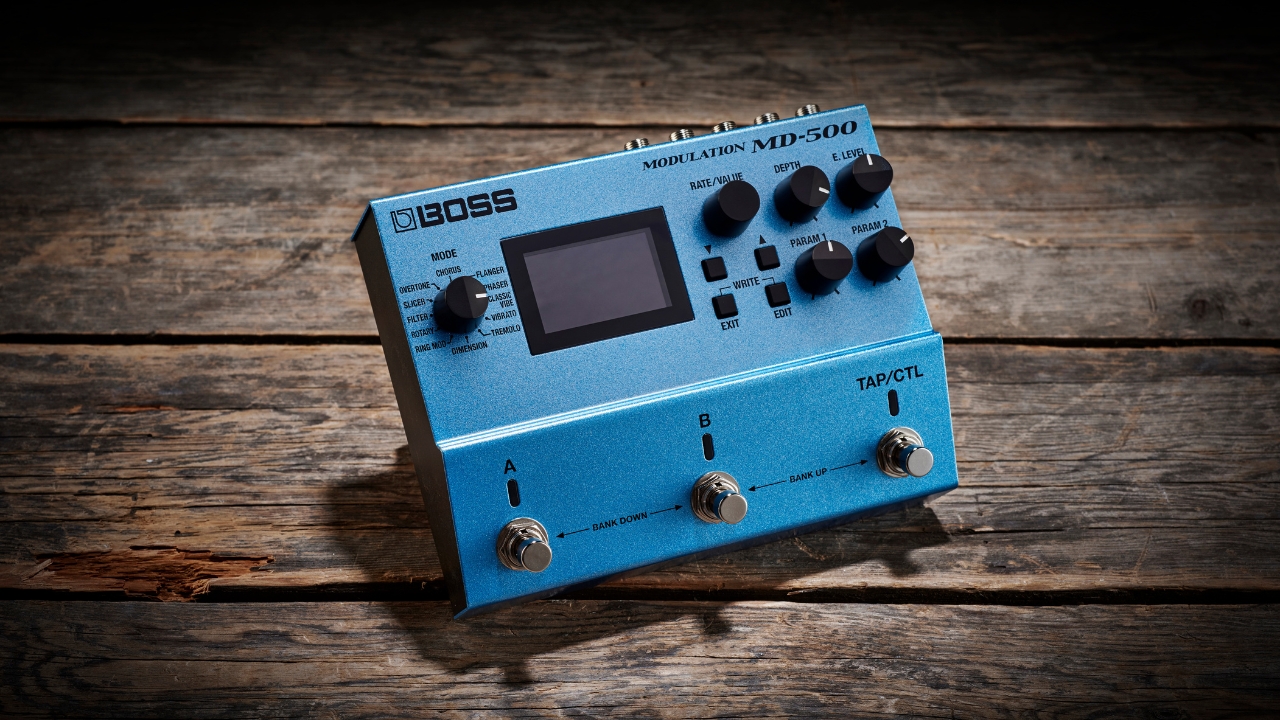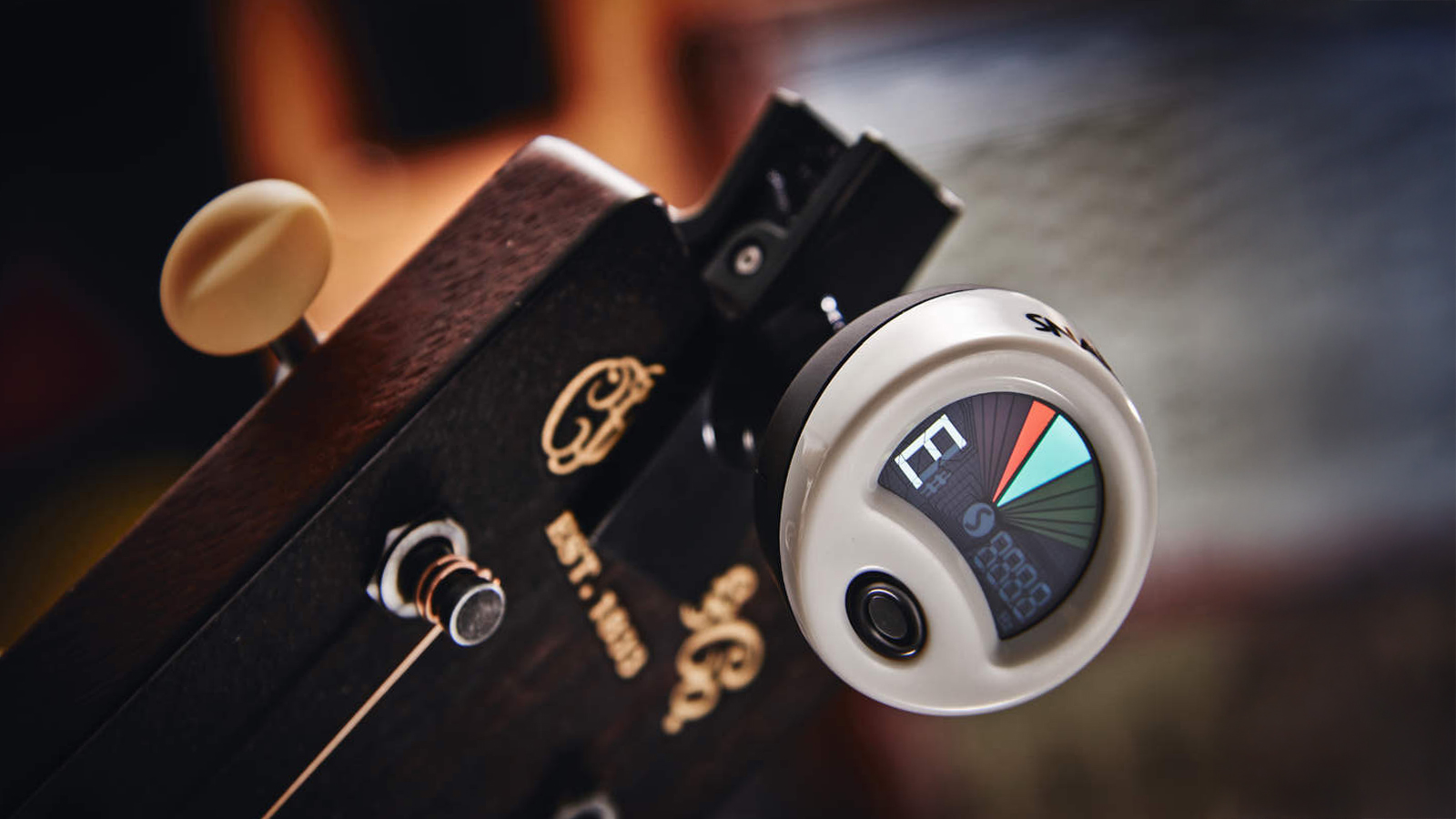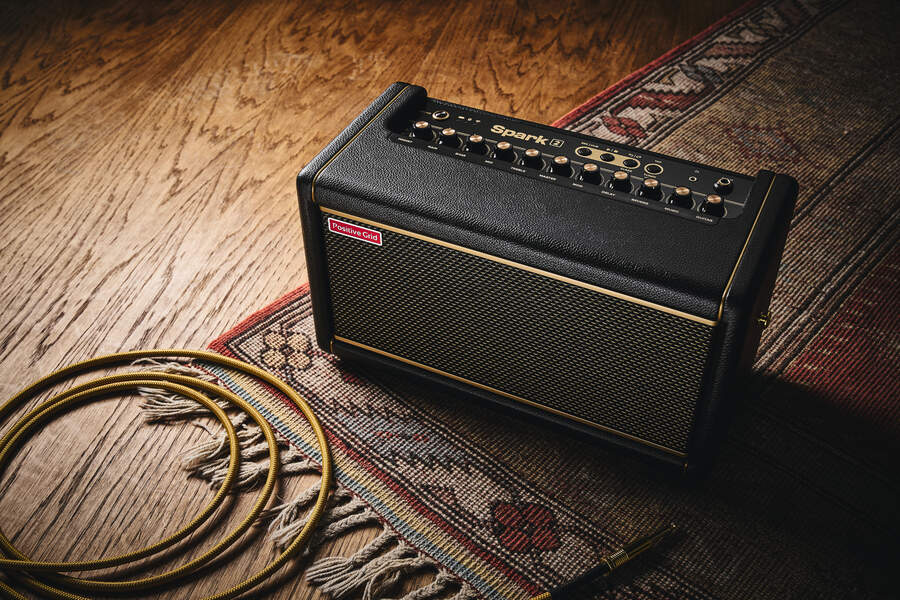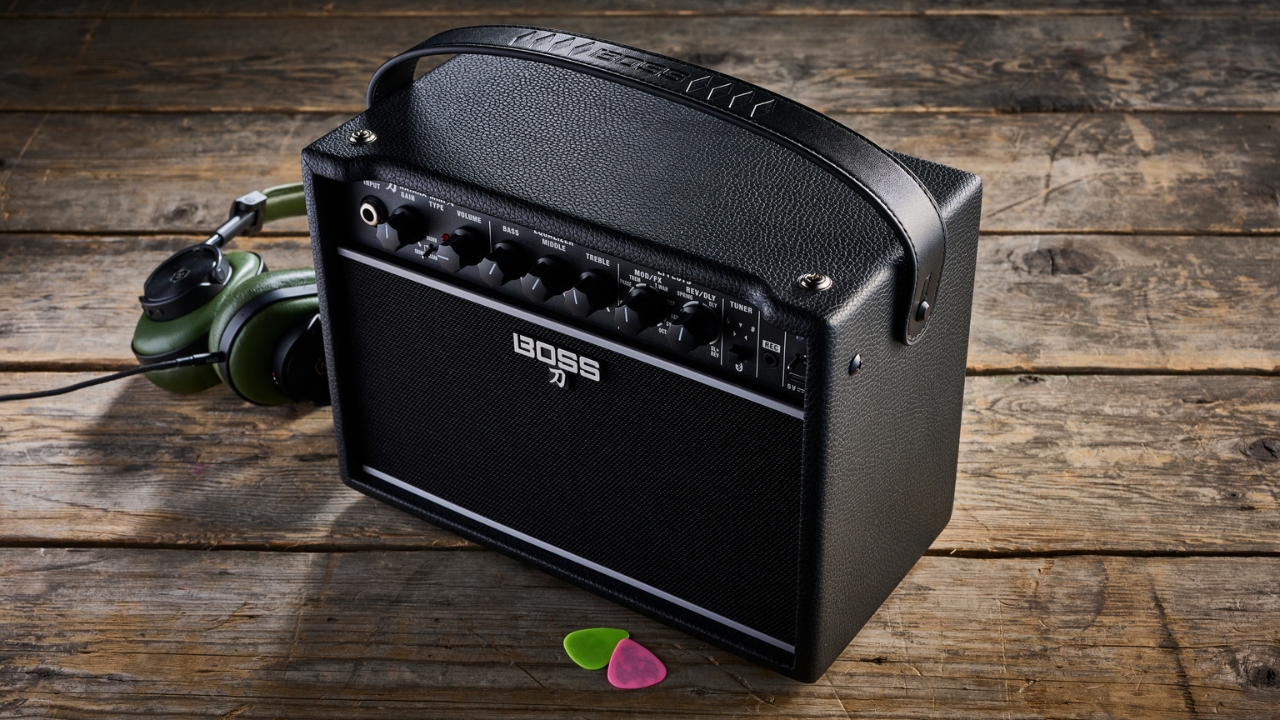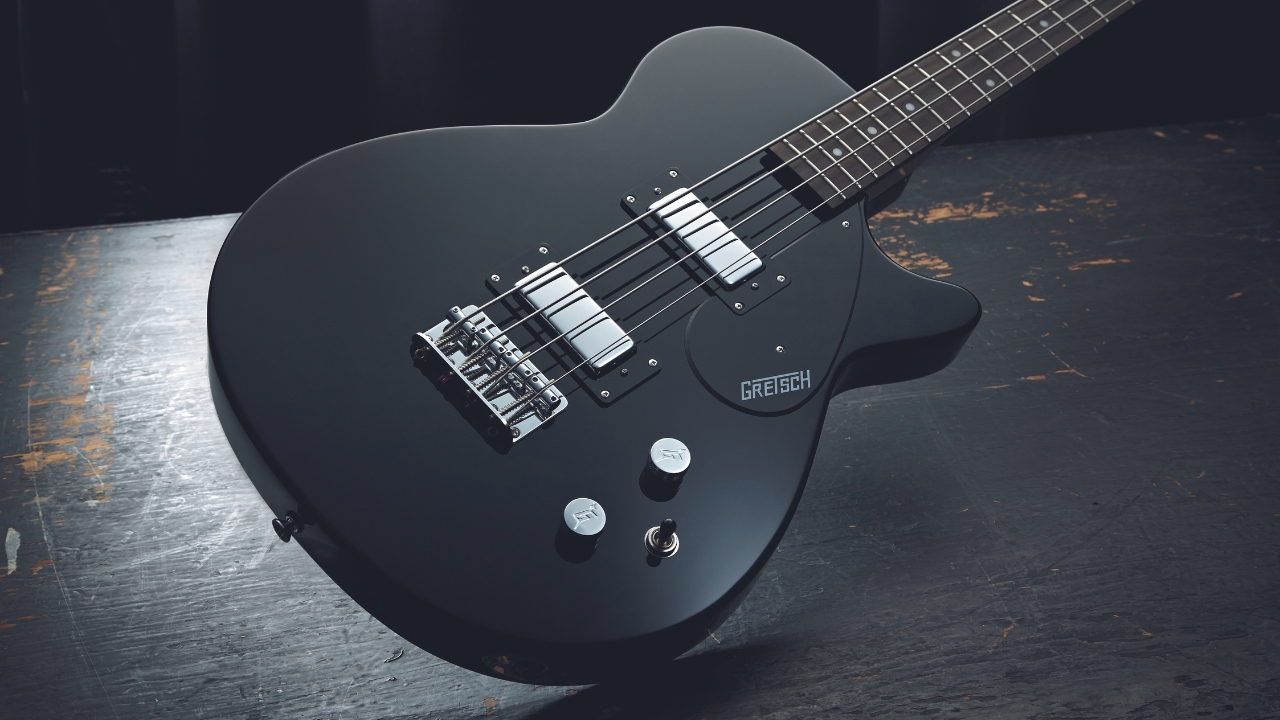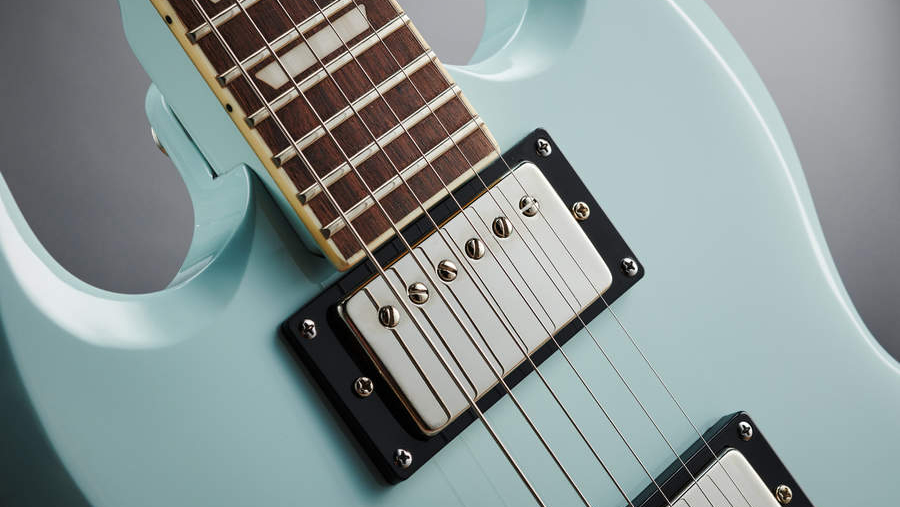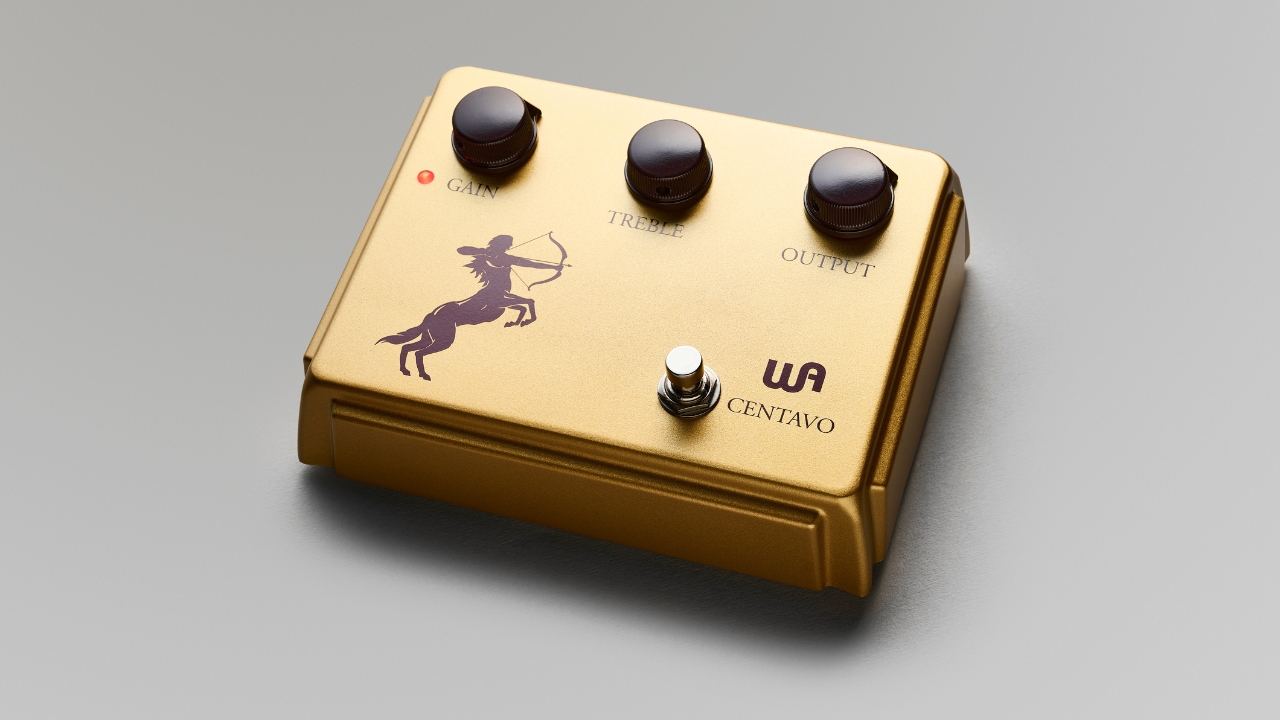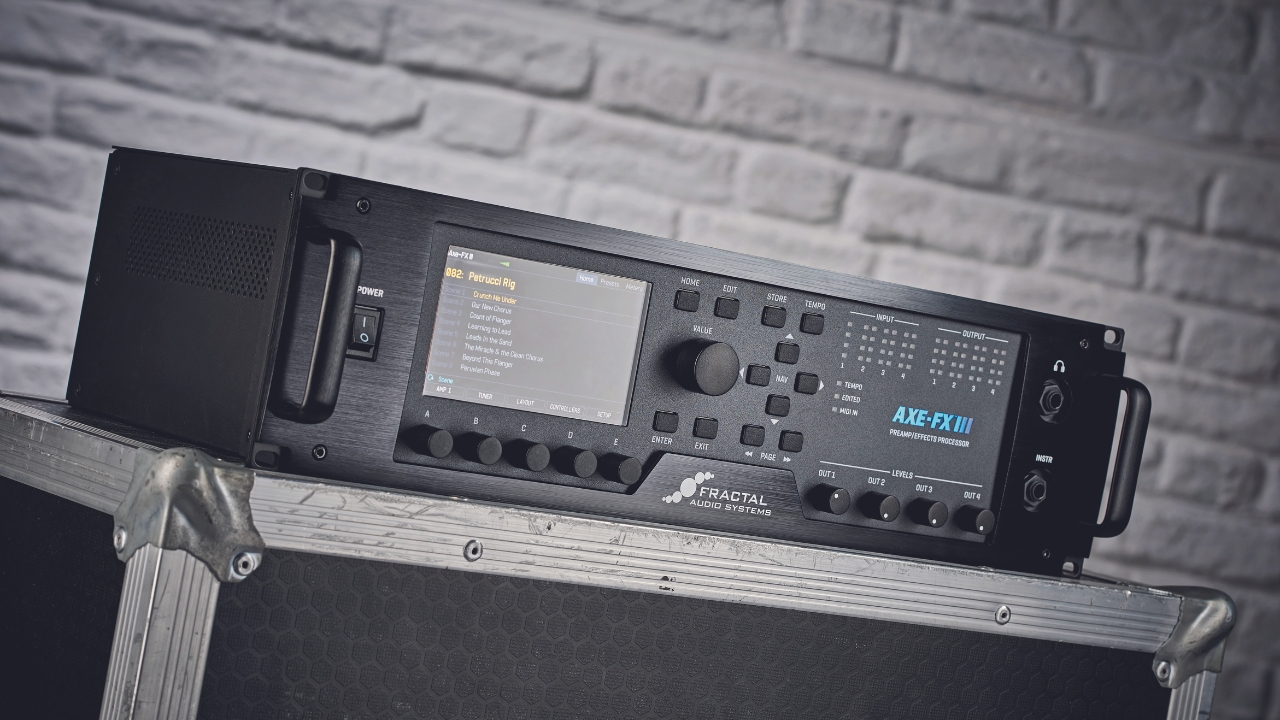Best Noise Gate Pedals 2025: Bring some silence to your sound with noise gates for all budgets
With options from Boss to Darkglass, TC Electronic to Revv Amplification, we have selected a noise gate to suit every style of rig
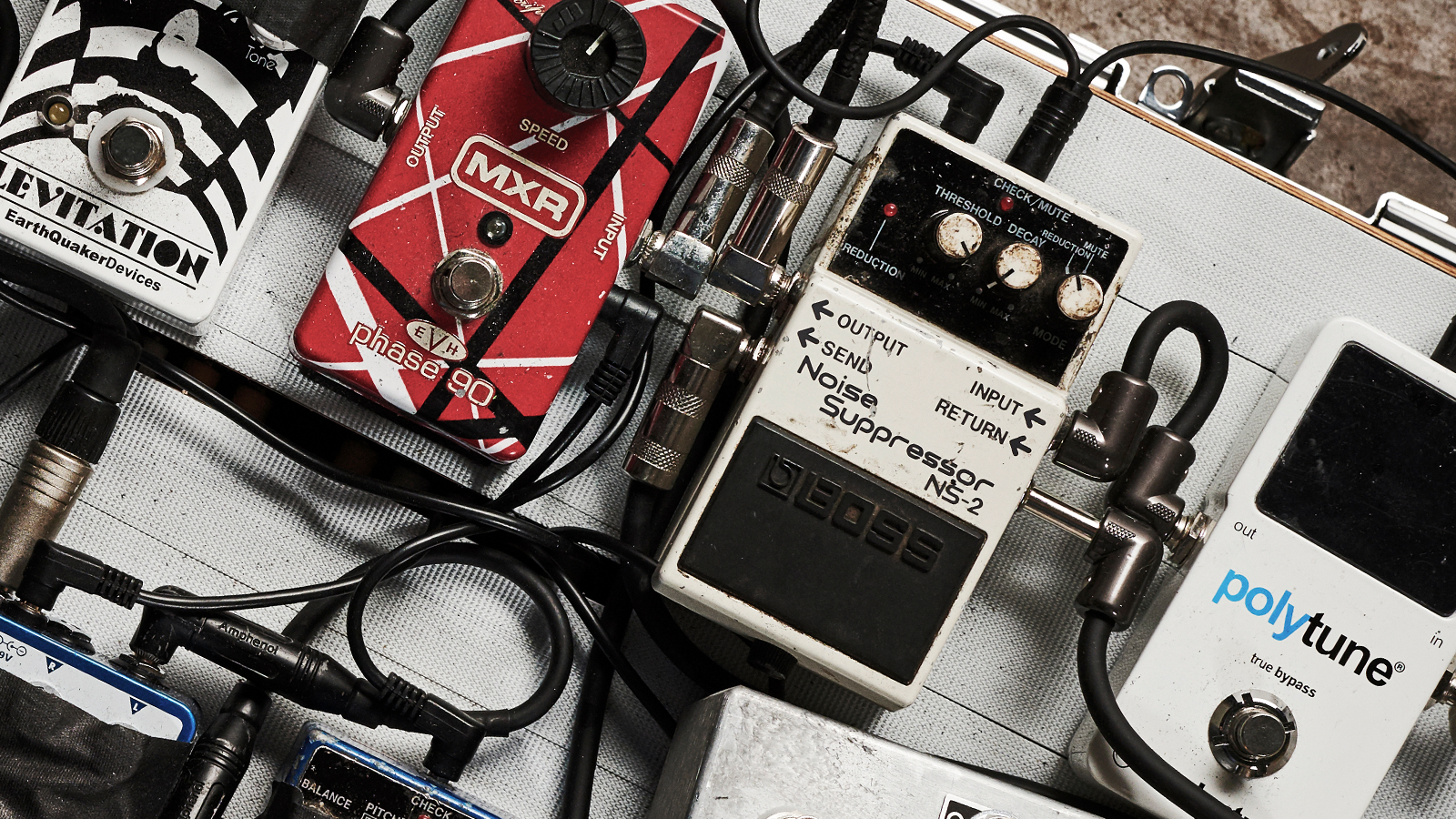
In the pursuit of perfect tone, it might seem counterintuitive to invest in something that is designed to silence your guitar, but the best noise gate pedals can work with your tone to enhance it by removing unwanted noise or hum. The noise gate is a simple concept, and its name is pretty self-explanatory: a ‘gate’ opens and closes to allow or stop noise going through. It’s really as simple as that.
The nuance of a gate is the speed at which it opens and closes and the volume of signal – typically referred to as threshold – that forces the gate to open. Many of the best noise gates feature controls that allow you to change the way that the gate opens and closes, and some allow even more features that not only allow a gate to suppress unwanted nasty noises but also become a rhythmic tool for your playing.
Whatever your playing style or application, a noise gate can be really useful to add to your signal chain, and we’ve selected the best on the market.
Best noise gate pedals: Our top picks
The best noise gate you can buy comes from the stompbox masters, Boss. Their NS-1X is a premium offering that delivers everything you could want from a noise gate with forensic tweakability, which is perfect for those who are serious about cutting noise from their sound, even when using the heaviest gain.
The TC Electronic Iron Curtain is an ideal entry-level noise gate that’s simple in operation and ideal for those looking for an affordable and elegant solution for removing noise without busting the bank or those interested in testing out a noise gate for the first time.
Best overall
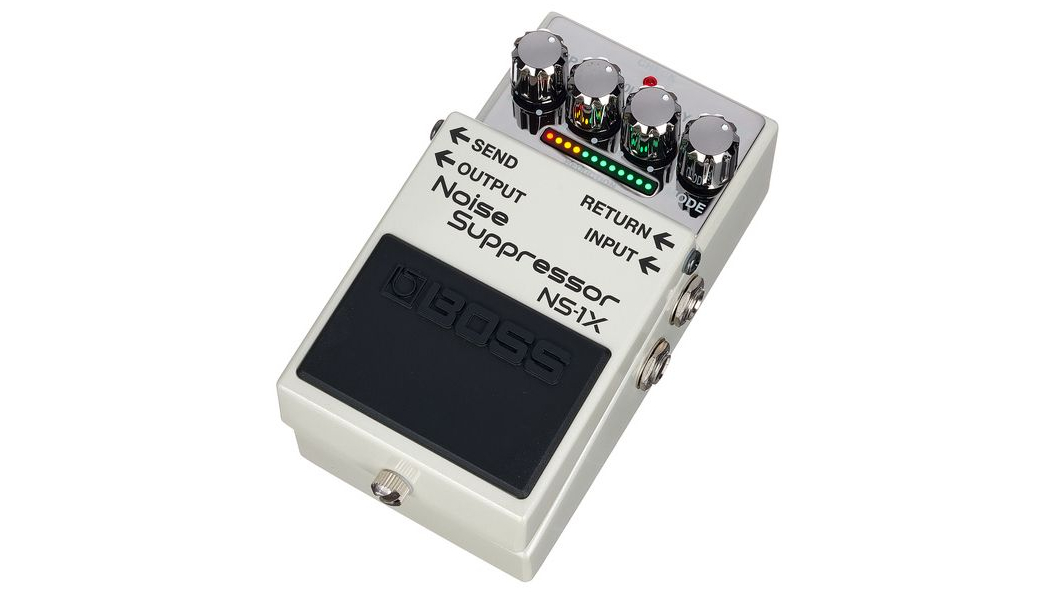
1. Boss NS-1X Noise Suppressor
Our expert review:
Specifications
Reasons to buy
Reasons to avoid
The NS-1X from Boss is the pinnacle for noise gates. With many noise gates, there can be a slightly jarring feeling, where notes are cut off abruptly, or their attack feels unnatural, but the NS-1X doesn’t have either of these problems, offering a fantastically musical experience and easily allowing the user to dial in the correct settings to reduce only what’s unwanted and retaining tonal clarity.
Featuring three modes – gate, reduction, and mute – the NS-1X is anything but a one-trick pony, catering for those who just want to remove hum or those who want a heavy gate that absolutely clamps down all sound between playing.
Another feature that sets the NS-1X apart is its graphic LED display that lets you see the gate coming into action. While some will be happy to set their noise gate exclusively by ear, the visual guide is super valuable and will really appeal to those who use software noise gates when recording their guitar. It comes at a premium price tag, but this is everything you will ever want in a noise gate pedal.
Best for features
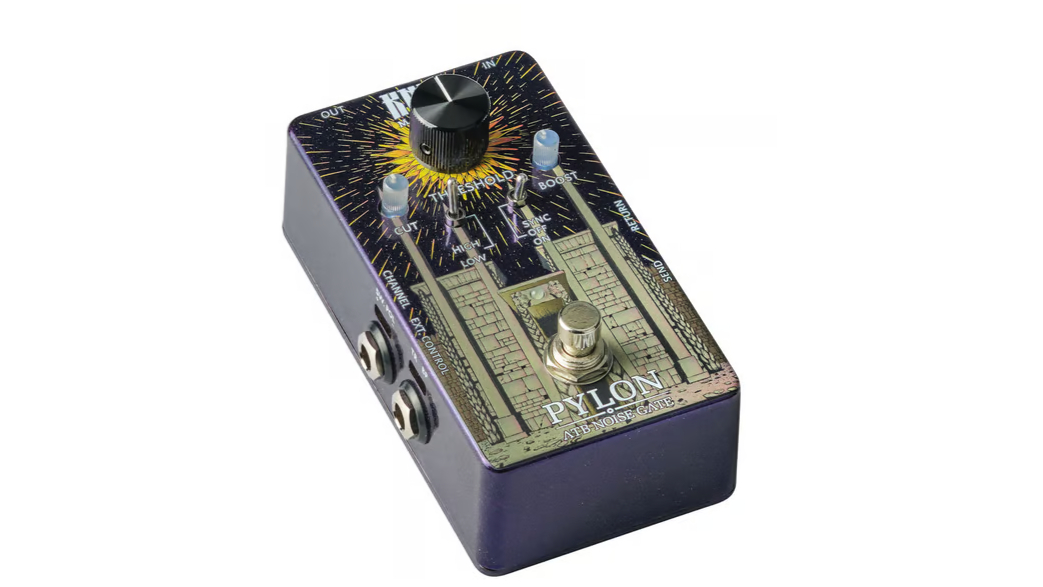
2. KMA Machines Pylon Active Transformer Boost Noise Gate Pedal
Our expert review:
Specifications
Reasons to buy
Reasons to avoid
If a comprehensive feature list is a necessity for you when looking for a noise gate, the KMA Machines Pylon offers everything you could want. Among the competition, the Pylon arguably has the most comprehensive range of controls, with adjustable threshold, release, and hold parameters that make it perfect for all genres, plus additional features, including a built-in audio transformer that set it apart from the competition.
A particular high point of the Pylon is its integrated boost/attenuator with up to +30 dB of gain. This is particularly useful when used with its effects loop, which allows the user to place specific pedals or even entire signal chains within the loop, with only the noise from those particular effects being targeted while the rest of the signal remains untouched. The boost ensures that any loss of volume when passing through the effects loop – which should be minimal anyway – can be balanced.
Another one of the Pylon’s seemingly endless features is the external control input, which means it can be used with a sidechain, utilizing an external signal to operate the gate, opening your guitar up to rhythmic gating.
Those who strive for the perfect tone should consider this pedal, as the Pylon's transparent operation ensures that your original signal remains uncolored, making it ideal both for live performances and in the studio, where tonal scrutiny is at its peak.
Best on a budget
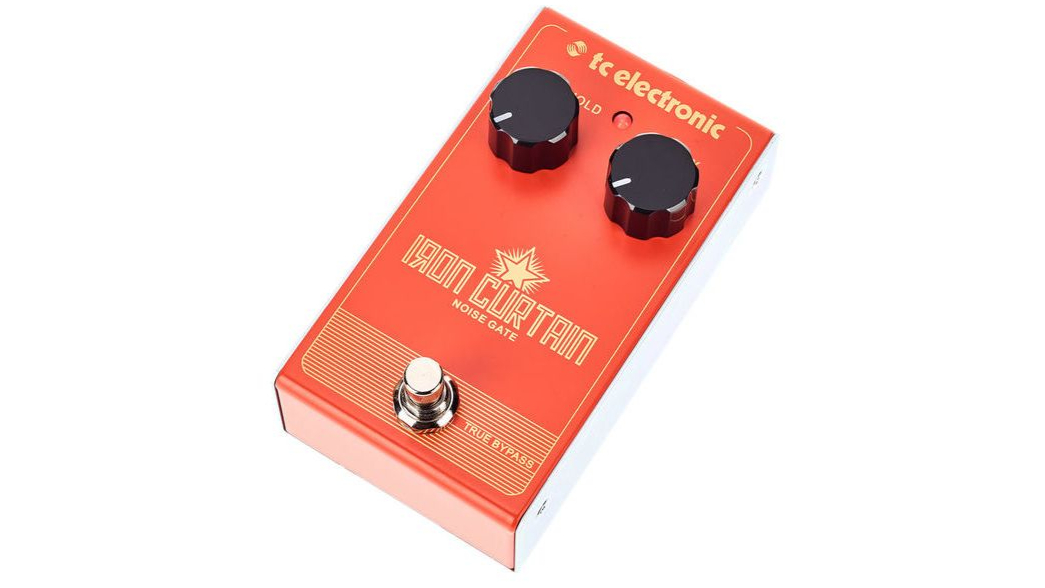
3. TC Electronic Iron Curtain
Our expert review:
Specifications
Reasons to buy
Reasons to avoid
The Iron Curtain from TC Electronic is a brilliantly simple noise gate with only two controls to operate: threshold and decay. Despite its simplicity, these two controls allow you to manipulate the reaction time of the gate drastically, taking you between a hard gate that aggressively slams shut to a more gentle, subtle gate that should be almost undetectable in use.
It doesn’t have the bells and whistles of more premium pedals, but at only around $50, you wouldn’t expect it to. For those on the hunt for a super accurate and endlessly adjustable noise gate, this might not fulfil all your gating desires.
However, for those just looking to reduce hum – single coil players, we’re looking at you – this would be an excellent addition to your pedalboard.
Best for high-gain
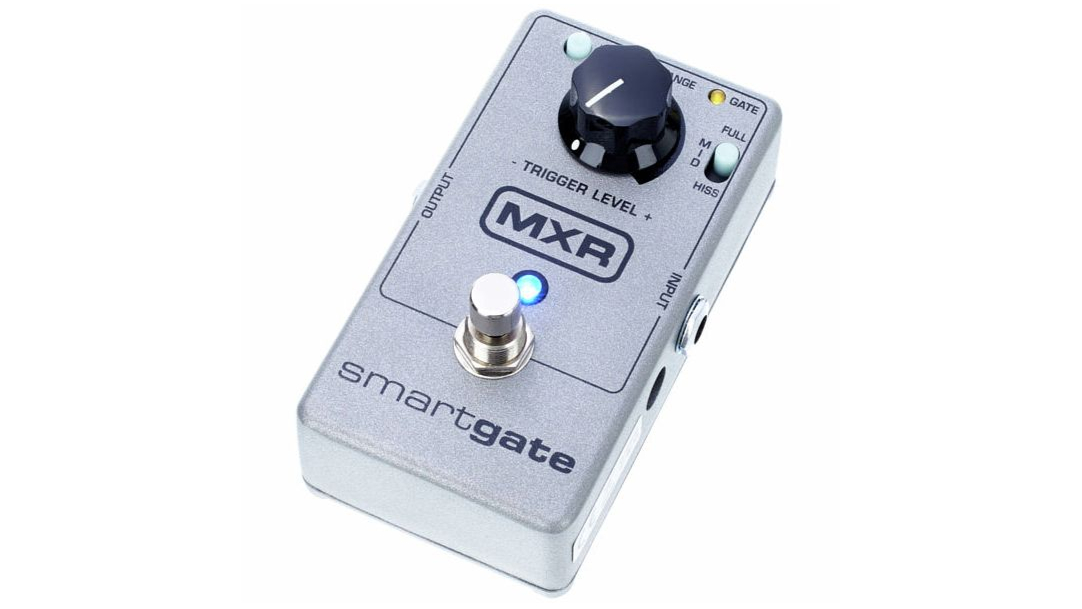
4. MXR Smart Gate
Our expert review:
Specifications
Reasons to buy
Reasons to avoid
The majority of noise gate pedals will find their home in the realm of high-gain tones, and this is undoubtedly the genre that the MXR Smart Gate excels in. It’s remarkably simple in operation for such a powerful tool, with just one ‘trigger level’ knob that handles how quickly you want the gate to open, accompanied by a pair of switches (Mode and Hi Trigger). Don’t let the lack of knobs fool you, though; it’s mighty effective despite its simplicity.
Despite the wide range of gating options the Smart Gate provides through its one knob control, as a gate pedal that sits towards the higher echelons of the market, some users may expect additional controls, with the two switches giving limited parameters to edit the gate’s characteristics. However, the vast majority will find that MXR has created a pedal that will suit their needs right out of the box, and the three settings of ‘full’, ‘mid’, and ‘hiss’ will generally cover all uses.
Full mode offers a really dynamic quick gate that snaps close and produces a tight sound that is ideal for chugging, while Hiss mode does an excellent job removing any trace of nasty noise in your sound, with Mid sitting somewhere in between.
Most versatile noise gate
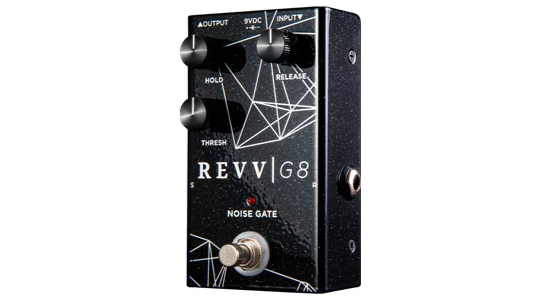
5. Revv Amplification G8 Noise Gate
Our expert review:
Specifications
Reasons to buy
Reasons to avoid
The unquestionable winner of the best name for noise gate pedal, the Revv Amplification G8, also comes close to being the best noise gate money can buy. Based on the revered gate from the REVV Generator 120 MK3 top unit and featuring a three-knob design – threshold, hold, and release – the G8 gives the user precision control over how the gate reacts.
Though Revv specialize in high-gain pedals and amplification, the G8 has been designed with all genres in mind, placing emphasis on transparency of tone, so that it’s suited to all types of tonal application.
With send and return input/outputs, the G8 can be used for more surgical noise removal using the 4-cable method. It’s a little more complicated to set up, but it is the optimal way to use it. Alternatively the send/return can be used for a sidechain function for rhythmic gating from an external source.
Best for bass guitars
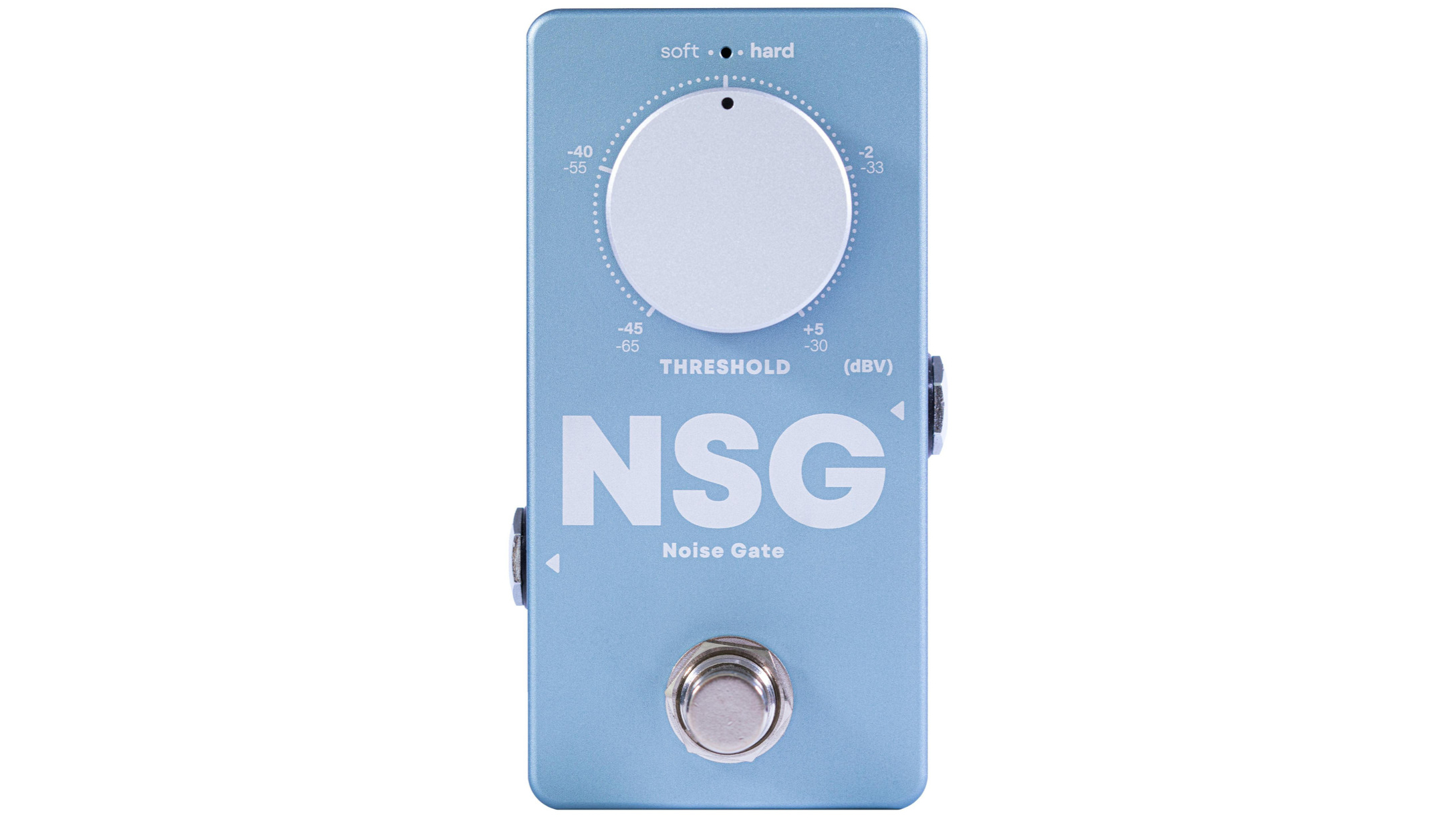
6. Darkglass NSG Noise Gate Pedal
Our expert review:
Specifications
Reasons to buy
Reasons to avoid
As masters of high-gain bass amplification and tone shaping, Darkglass know a thing or two about the heavier genres where noise gates come into their own. The NSG Noise Gate is certainly made with gain in mind, with an uncanny ability to deliver precise and transparent noise reduction, even when faced with crushing gain or complex signal chains.
Despite that, it’s really straightforward to operate, with a simple threshold control acting as your sole control option with an integrated switch to move between hard and soft modes to unlock aggressive and more gentle gates, respectively. Some users may prefer more options, and it may not be ideal for those who don’t play with lots of gain, however it can comfortably remove noise in most applications.
Designed primarily as a pedal for bassists, guitarists may want to look for something built with guitar in mind, though the NSG can work just as well with guitar and even keyboards, so multi-instrumentalists should place this high up their lists.
Best for reliability
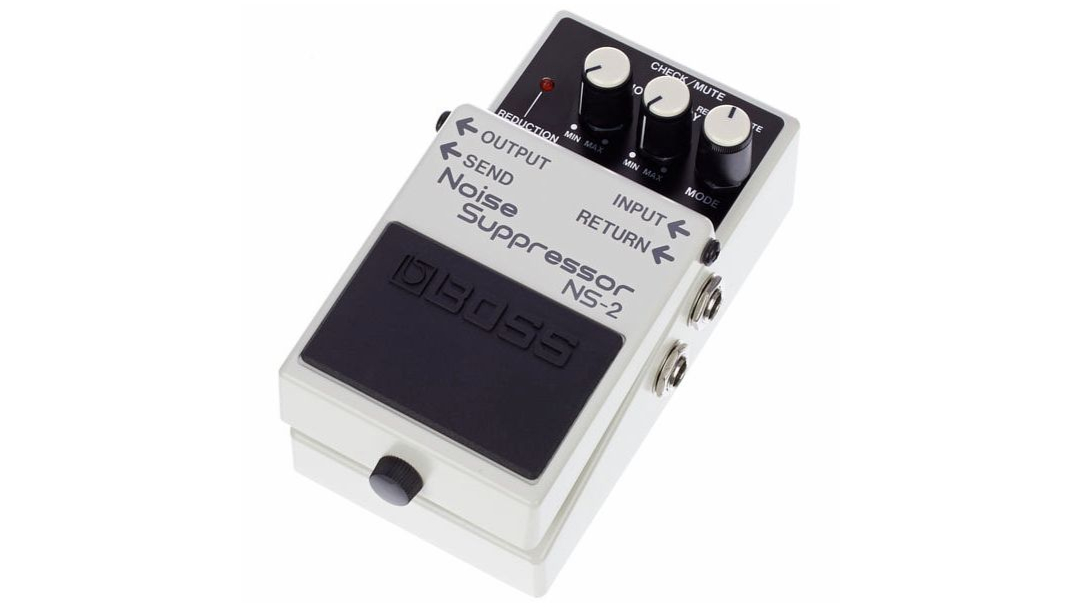
7. Boss NS-2 Noise Suppressor Pedal
Our expert review:
Specifications
Reasons to buy
Reasons to avoid
If you want reliability from your noise gate – and of course you do! – it’s hard not to make the case for the classic Boss NS-2, even if it isn’t exactly a spring chicken anymore. It isn’t quite as versatile as its bigger brother, the NS-1X, but for the vast majority of people this will be everything you need from a noise gate pedal. The two main controls, ‘threshold’ and ‘decay’, alter the characteristics of the gate, while a mode switch toggles between two styles.
As with every other Boss pedal, the NS-2 is built like a tank and should last you years. It will definitely appeal to those who gig frequently. Designed with smart circuitry that not only detects noise but also distinguishes it from the guitar signal for tailored noise removal, the NS-2 retains your guitar’s signature sounds while removing the unwanted noise, though some users have noted that it does color your sound when playing with particularly high amounts of gain.
Best for beginners
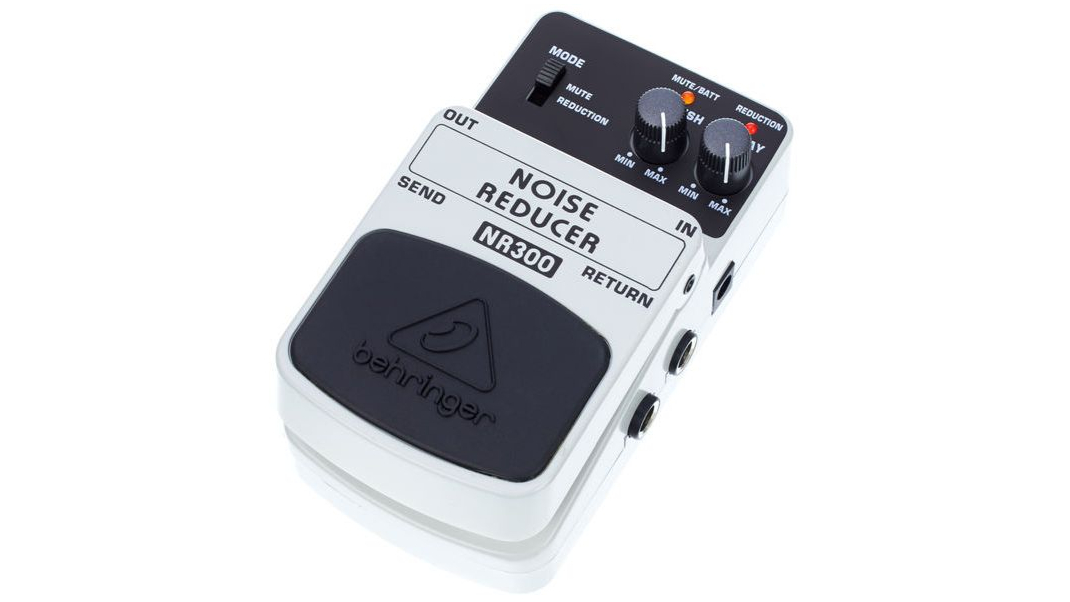
8. Behringer NR300 Noise Reducer
Our expert review:
Specifications
Reasons to buy
Reasons to avoid
If you’re not sure whether you will need a noise gate regularly, the Behringer NR300 Noise Reducer is a perfect introduction to noise gates. Coming in at a, frankly, insane price point, it’s ideal for those who want to test how a noise gate can improve their sound. For those who play with low to moderate gain, it functions particularly well, though it may struggle to cope with higher gain sounds.
The plastic chassis is surprisingly tough and should last well, though it does mean this pedal looks and feels as cheap as it is. The NR300 is a good pedal for the casual gate user, but die-hard enthusiasts should only look here if they are on a very tight budget.
Best for simplicity
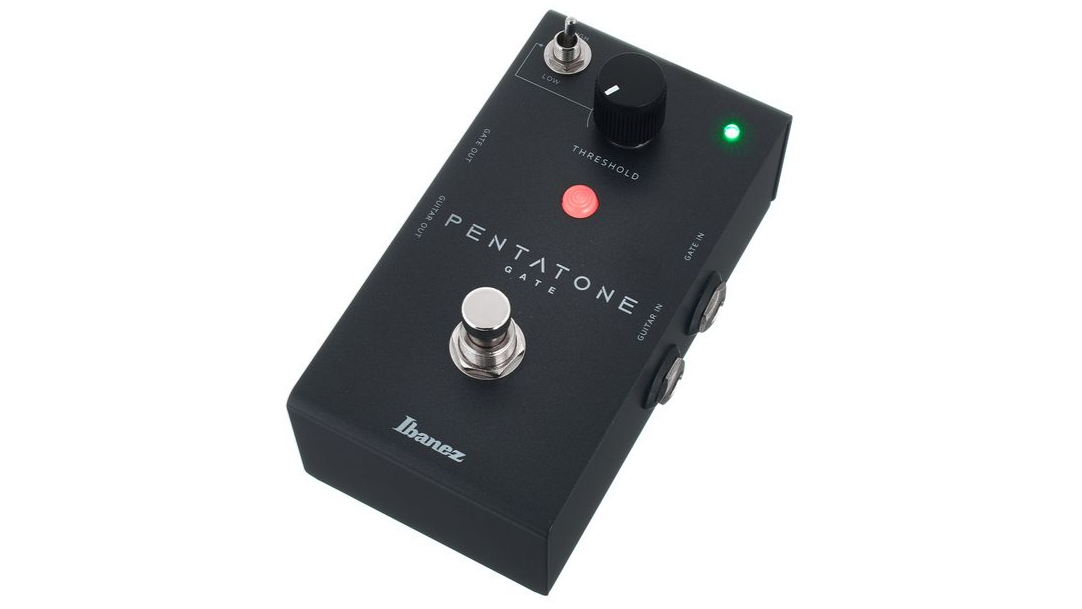
9. Ibanez Pentatone Gate PTGATE
Our expert review:
Specifications
Reasons to buy
Reasons to avoid
Ibanez’s Pentatone PTGATE offers extreme simplicity, with just one threshold knob and a high/low switch to move the range at which the threshold operates, providing all the control you get on this pedal – but that’s no bad thing. Those looking for a simple gate will love the ease of use of the Pentatone gate, which manages to retain your amp tones, even under substantial gating.
The gate has been derived from the Pentatone preamp pedal, which featured a version of the noise gate that was so lauded it has been turned into its own pedal. While Ibanez has chosen to retain the simplicity of the original Pentatone preamp’s gate, they have also equipped it with an effects loop, allowing players to use the gate on specific sections of their signal chain. At under $100, it also represents good value, with performance that rivals the best noise gates in class.
FAQs
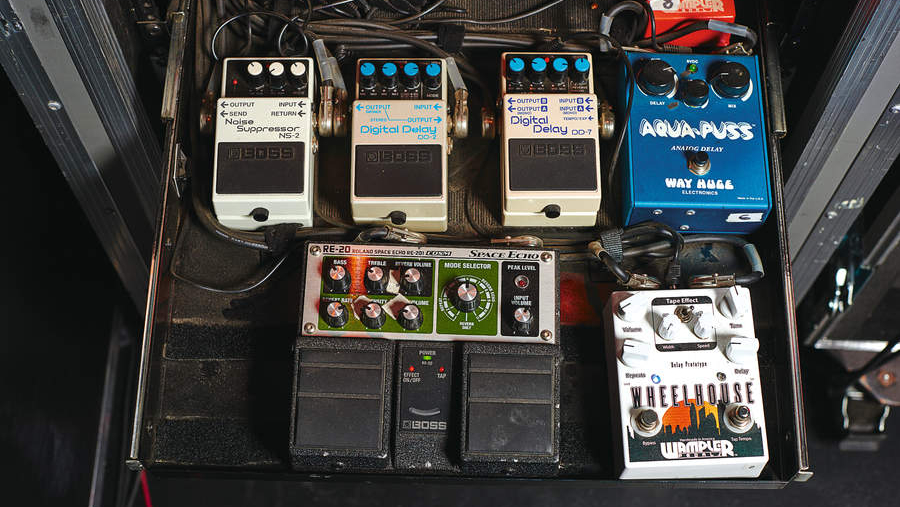
What is a noise gate pedal and how does it work?
A noise gate is a pedal that, when active, will reduce unwanted noise in your circuit. By ‘noise,’ we typically mean hum, hiss, or buzz generated from your guitar, other pedals, or amp itself. This is sometimes caused by different gain stages that introduce noise into the circuit or external electrical signals interfering with your sound.
One of the best ways of understanding how a noise gate works is to explain it in a real-world scenario. Consider somebody banging on your door, and you’ll only open it and let the person through if they bang loudly enough – if it’s too quiet, then you don’t open the door. In a noise gate, if your guitar signal reaches a certain ‘threshold’ – a term you will hear come up frequently when referring to noise gates – it is allowed through the gate. As it becomes quieter, the gate – or, in our scenario, your door – closes and stops any other sound coming through. This is a noise gate in its simplest form, and the addition of parameters such as ‘hold’, or ‘release’ can have a vast impact on how the gate reacts, which makes them more or less suitable for specific playing styles or genres.
The noise gate should always come after where the noise emanates from in your signal chain, so typically after a distortion or fuzz pedal. Many choose to have it near the end of a signal chain but prior to any reverb or delay pedals, as the gate can interact poorly with the repeats, cutting them off prematurely. A gate can also go in your effects loop with your time-based effects, and this may be preferable if you want to remove some noise from your preamp if you have a particularly heavy gain tone driven directly from the amplifier.
What’s the difference between an expensive and cheap noise gate?
Given a noise gate appears to be a relatively simple pedal, it’s totally reasonable to ask why a cheaper stompbox wouldn’t always be the best route to go, because they can vary from well under $50 all the way up to beyond $250.
The best gates will have been engineered to establish ‘noise’ in your sound and target that specifically without coloring your sound. The cheaper the noise gate, the more likely it is that it may impact your tone, often with the high-end frequencies facing the consequences, leaving your sound feeling a little flat and dull.
Some gates will also struggle to operate effectively when subject to high-gain tones – often where a gate is most needed. Many of the best noise gate pedal manufacturers happen to specialize in high-gain tones – REVV and Darkglass, for example – and have built their noise gates through rigorous testing of extreme high gain.
While there are some cheaper noise gate pedals that feature an effects loop, typically, the best effects loops are featured on more expensive pedals. You may not strictly need an effects loop and may be happy just utilizing your noise gate pedal in series. That said, an effect loop does mean you can tame individual pedals, signal chains, or your amplifier if you so choose by plugging the specific pedal(s) through the loop. It’s well worth experimenting with effects loops, and even the cheapest noise gates can have them built in. However, the loops on cheaper pedals can have a reputation for causing loss of tone and signal, so this should be factored in.
Some noise gates are implemented to remove unwanted noise, such as hum, and others are used as musical tools. For example, ‘Djent’ is a genre known for its rhythmic, percussive playing, and a noise gate is almost always used to create defined, hard stops between the notes. More expensive noise gates will typically have quicker reaction times and increased options to set the perfect sensitivity/trigger level, while some will even have the option of external control, which means the gate can be triggered by a remote audio source, such as a drum track.
What kind of genres use noise gates?
Noise gates are predominantly used in genres that use a lot of gain – because with gain comes noise! Even the best high-gain pedals and amplifiers will introduce a certain amount of noise into your sound. When you’re playing, this is masked. However, in quieter moments where you may not be playing, this can be unbearable.
If you play exclusively clean tones with lots of dynamic moments, then a noise gate probably won’t be something you use regularly. That said, there are instances where a noise gate might be helpful. Gated reverb is the use of a noise gate after a reverb effect, which abruptly cuts off a reverb tail. This can give a unique sound effect of a large reverb with a short tail – think of the drums on ‘In The Air Tonight’ by Phil Collins. As an effect, it’s more commonly used on percussion instruments but can also be used on guitar, particularly in a band environment if you don’t want your reverb to spill over into quiet sections where reverb trails may interfere with compositional moments – a musical ‘stop’ for example, where there’s a deliberate moment of silence.
Should I buy a noise gate?
Whether you should buy a noise gate will be dependent on how often you find yourself looking to quell the noise in your rig. Of course, with a number of pedals available at the budget end of the market, it is well worth considering investing in a noise gate to add some calm to an otherwise raucous rig. For those who use lots of distortion or fuzz, a noise gate could be transformative to your sound, though bear in mind that cheaper gates may not be as effective at taming your noise when also facing heavy gain.
If you are curious to try out noise gates and have access to a digital audio workstation, such as Garageband, Logic, or Pro Tools, these software packages will have noise gate plugins which are a great way to learn how they work with real sound scenarios, and you can even record a noisy guitar track in and hear how it sounds with and without a noise gate engaged.
How we choose
At Guitar Player, our team of writers aren't just music enthusiasts; we're real-life musicians. Our hands-on experience with overdrive pedals ensures that our reviews and recommendations are backed by practical knowledge and real-world testing.
When it comes to selecting the best noise gate pedals, we leave no stone unturned. Meticulously evaluating factors like tonal versatility, sonic character, build quality, and value for money, it's only after rigorous testing in a variety of playing scenarios do we choose products for our guides. We stand by our selections, ensuring that every pedal we recommend is one we'd use ourselves.
Read more on how we test gear and service at Guitar Player
Related buyer's guides
You can trust Guitar Player.
- Check out the best distortion pedals
- Get it all in one with the best multi-effects pedals
- The best delay pedals augment your tone
- Add some space with the best reverb pedals
- The best looper pedals improve your playing
Get The Pick Newsletter
All the latest guitar news, interviews, lessons, reviews, deals and more, direct to your inbox!
"The only thing missing is the noise from the tape loop." We review the Strymon EC-1 Single Head dTape Echo, a convincing take on a very special vintage tube Echoplex
"BigSky MX will be replacing the BigSky as my go-to reverb pedal. I’ve heard nothing that covers all the bases with such pristine and detailed audio quality." We crowned the Strymon BigSky MX the champ of multi-reverb pedals
